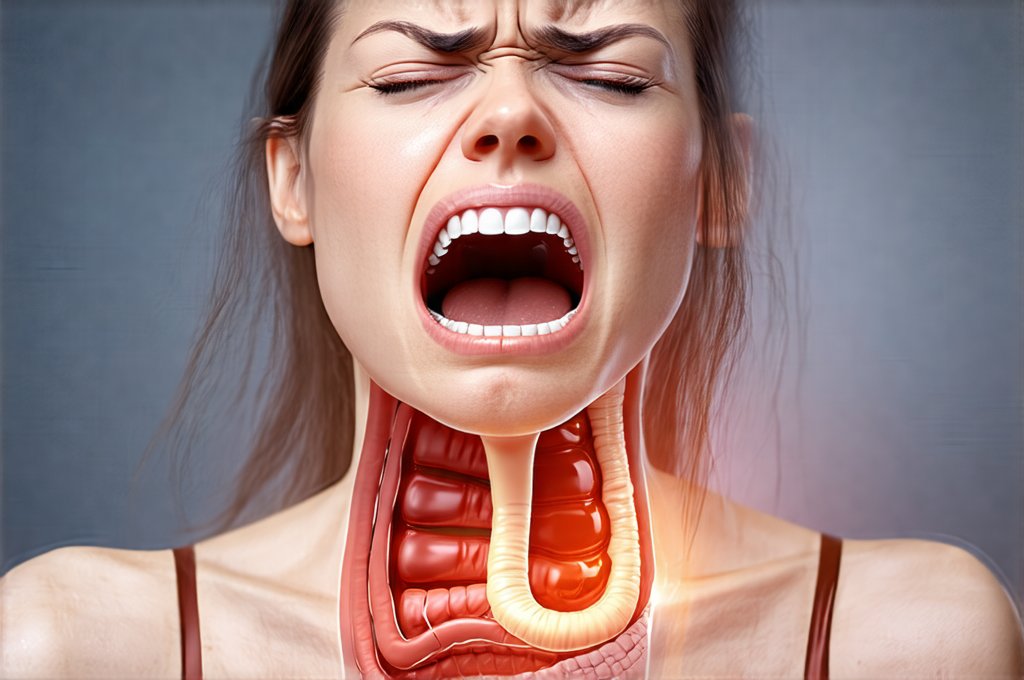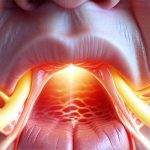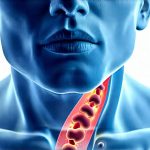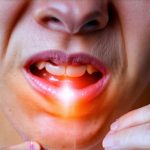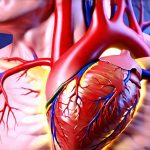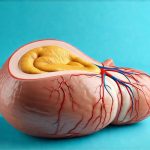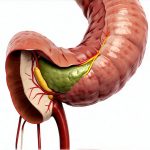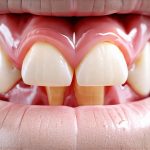Many people experience uncomfortable symptoms like heartburn, chest pain, difficulty swallowing, or even a feeling of a lump in their throat. While these can understandably raise concerns about serious illness, often the culprit isn’t what you might initially think. Frequently, these physical sensations are either gastroesophageal reflux disease (GERD) or anxiety – and sometimes, they’re both intertwined, making accurate self-diagnosis incredibly challenging. The overlap in symptoms is significant, leading to misdiagnosis, unnecessary worry, or delayed appropriate care. Understanding the nuances between these conditions is crucial for seeking the right support and treatment.
The confusion stems partly from the close physiological connection between the gut and the brain – often referred to as the “gut-brain axis.” Anxiety can directly impact digestive function, exacerbating GERD symptoms, while chronic acid reflux can contribute to feelings of stress and anxiety, creating a vicious cycle. This bidirectional relationship makes it difficult to pinpoint the primary cause of discomfort without careful evaluation. It’s also important to remember that both GERD and anxiety are common conditions; millions experience them annually, and both require attention when significantly impacting quality of life. However, attempting self-diagnosis can be misleading, and a healthcare professional is always best equipped to provide an accurate assessment. Considering is it the food or the additive causing trouble can help narrow down potential triggers.
Understanding GERD: The Physical Side
Gastroesophageal reflux disease (GERD) occurs when stomach acid frequently flows back into the esophagus – the tube connecting your mouth to your stomach. This backflow, called acid reflux, irritates the lining of the esophagus and can cause a range of uncomfortable symptoms. It’s not simply about occasionally feeling heartburn after a spicy meal; GERD is characterized by persistent or frequent reflux that disrupts daily life. The lower esophageal sphincter (LES), a muscular ring at the bottom of the esophagus, plays a key role in preventing this backflow. When it weakens or relaxes inappropriately, acid can creep upwards.
The symptoms of GERD are often quite distinct, though they can mimic anxiety-related discomfort. These commonly include:
– Heartburn (a burning sensation in the chest)
– Regurgitation (the feeling of stomach contents coming back up into your throat or mouth)
– Difficulty swallowing (dysphagia)
– Chest pain that can sometimes be mistaken for heart attack symptoms
– Chronic cough, especially at night
– Hoarseness
– A sour taste in the mouth.
It’s crucial to note that GERD isn’t just about the discomfort; prolonged, untreated reflux can lead to more serious complications like esophagitis (inflammation of the esophagus), esophageal stricture (narrowing of the esophagus), or even Barrett’s esophagus – a condition that increases the risk of esophageal cancer. Lifestyle modifications and medications (like antacids, H2 blockers, or proton pump inhibitors) are often effective in managing GERD symptoms but should be guided by a healthcare provider. Understanding gerd with esophagitis and its potential complications is vital for proactive health management.
Decoding Anxiety: The Mental Component
Anxiety is a natural human emotion characterized by feelings of worry, fear, or unease. However, when these feelings become excessive, persistent, and interfere with daily functioning, it can evolve into an anxiety disorder. Unlike GERD, which has clear physical mechanisms, anxiety manifests primarily as psychological and emotional symptoms – but its effects are often profoundly physical. This is where the confusion arises because many of those physical manifestations directly overlap with GERD symptoms.
Anxiety isn’t just a mental state; it triggers a cascade of physiological changes in the body, activating the “fight or flight” response. This includes increased heart rate, rapid breathing, muscle tension, and – importantly for our discussion – alterations in digestive function. Anxiety can cause the esophagus to spasm, leading to chest pain or difficulty swallowing. It can also increase stomach acid production and slow down gastric emptying, contributing to heartburn and bloating. Furthermore, anxious individuals may be more likely to engage in behaviors that exacerbate GERD symptoms, such as overeating, eating quickly, or consuming trigger foods. The feeling of a lump in the throat (globus sensation) is particularly common with anxiety – often described as a constant tightness or obstruction even when nothing is physically there. Learning how to eat without feeling heavy can help manage these symptoms, too.
Differentiating Factors: Key Clues
Pinpointing whether your discomfort stems from GERD or anxiety requires careful self-observation and, ultimately, professional evaluation. However, several differentiating factors can offer clues. Timing is crucial. GERD symptoms are often triggered by specific foods, eating habits, or body positions (like lying down after a meal). They tend to be more pronounced after meals and may improve with antacids. Anxiety-related discomfort, on the other hand, might be less directly tied to food intake and more closely linked to stressful situations or periods of heightened worry.
Another key difference lies in the nature of the discomfort. GERD heartburn is typically a burning sensation, while anxiety-related chest pain can feel more like a tightness, pressure, or aching. Anxiety often brings with it other psychological symptoms – racing thoughts, irritability, difficulty concentrating, and feelings of dread – which are generally absent in pure GERD. Pay attention to what else is happening when you experience these symptoms; are you feeling overwhelmed, stressed, or panicked?
Finally, consider the response to treatment. If antacids or acid-reducing medications provide significant relief, it’s more likely to be GERD. However, if the discomfort persists despite medication but diminishes with stress reduction techniques (like deep breathing exercises, meditation, or therapy), anxiety may be a primary factor. It’s important to remember that this is not a substitute for professional medical advice; these are simply indicators to discuss with your doctor. If you suspect chronic gastritis, it’s important to seek a diagnosis as well.
The Role of Lifestyle and Habits
Both GERD and anxiety can be significantly influenced by lifestyle factors. For GERD, common triggers include:
– Fatty or fried foods
– Spicy foods
– Caffeine
– Alcohol
– Chocolate
– Peppermint
– Smoking.
Modifying these habits can often provide substantial relief. Similarly, for anxiety, certain lifestyle choices can exacerbate symptoms:
– Lack of sleep
– Excessive caffeine or alcohol consumption
– Poor diet
– Lack of exercise
– Social isolation.
Prioritizing self-care – including regular exercise, a balanced diet, adequate sleep, and stress management techniques – is beneficial for both conditions. However, the focus differs slightly. For GERD, it’s about minimizing stomach acid production and preventing reflux; for anxiety, it’s about reducing overall stress levels and promoting emotional well-being. When in doubt about dietary choices, use spices without irritating your gut.
Seeking Professional Help: When to Consult a Doctor
Don’t attempt self-diagnosis. While understanding the differences between GERD and anxiety can empower you to better describe your symptoms, only a healthcare professional can accurately determine the cause and recommend appropriate treatment. If you’re experiencing persistent or severe symptoms – particularly chest pain that feels like a heart attack, difficulty breathing, unexplained weight loss, or vomiting – seek immediate medical attention.
Your doctor may recommend various tests to evaluate your condition, including:
– Endoscopy (to visualize the esophagus and stomach)
– Esophageal manometry (to measure esophageal pressure and function)
– pH monitoring (to detect acid reflux).
If anxiety is suspected, a mental health professional can provide an assessment and develop a treatment plan that may include therapy, medication, or both. It’s also important to remember that both conditions can coexist. In some cases, you might have GERD exacerbated by anxiety, requiring a combined approach to management. The key takeaway is this: listen to your body, be proactive about your health, and seek the guidance of qualified professionals when needed. Consider discussing IBS symptoms with a doctor if you suspect an overlap in conditions, and finally, remember how to know if your gut is healing.

